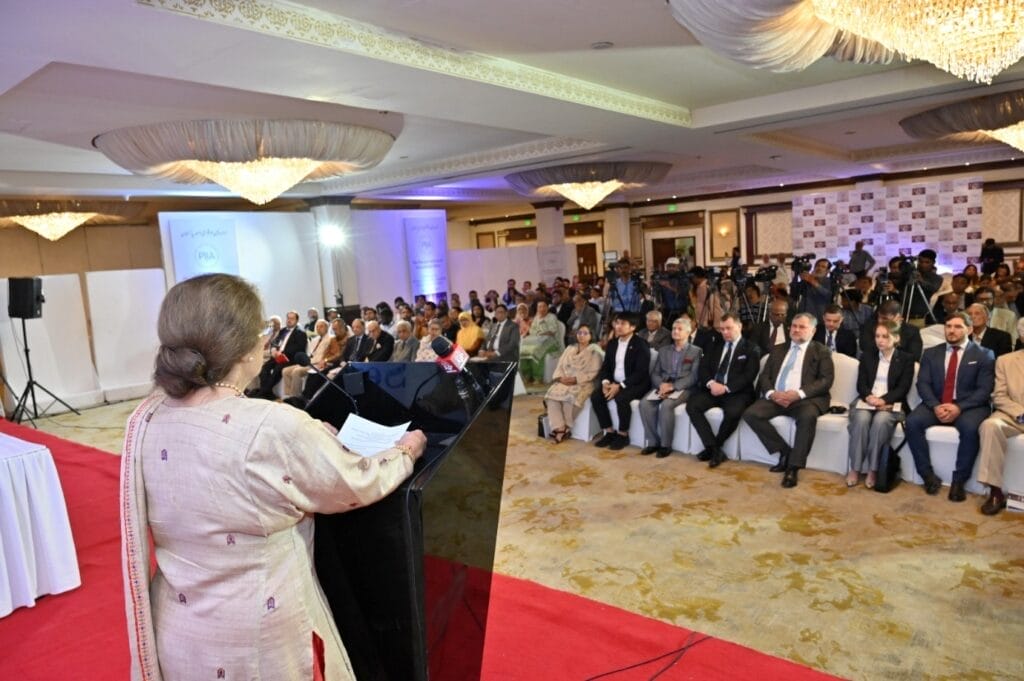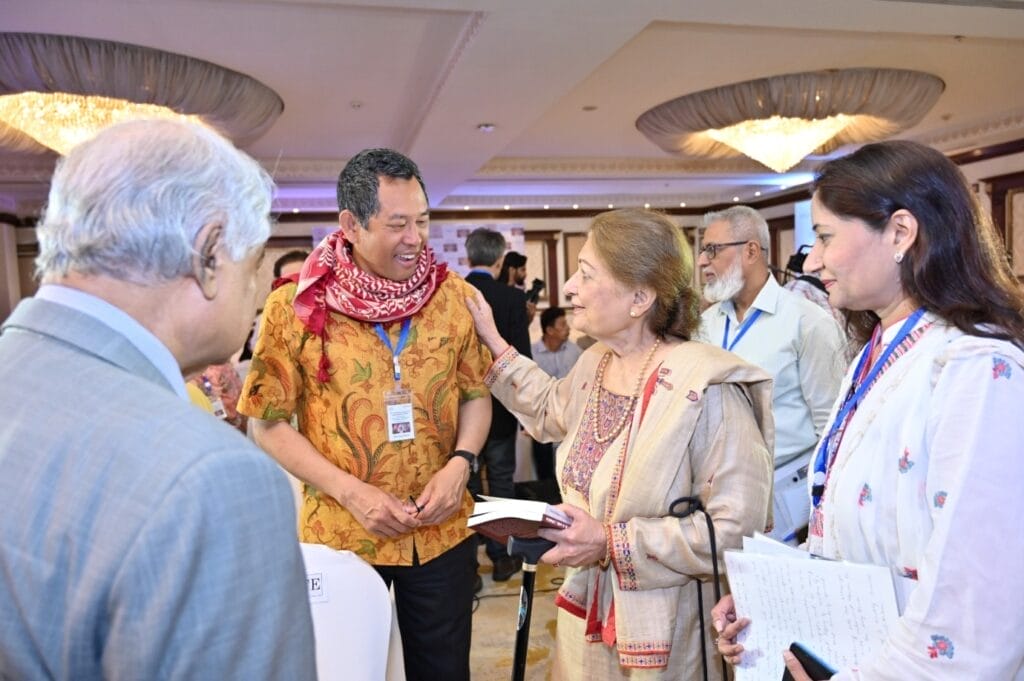Pakistan’s suspenseful wait was over. Finally, India’s expected military struck targets in Pakistan – and Pakistani-administered Kashmir on the evening of 6 May, 2025.
In our mass media age, powerful states – which are typically rogue states, disregarding diplomacy and international law, with hardly any exception – attack any territory, any human community and any buildings and tell the world the targets and the victims are “terror suspects”. Prime Minister Modi’s government did exactly just that: India has retaliated against the terrorist infrastructures from which “a militant attack that killed at least 26 people, mostly tourists, in the picturesque resort town of Pahalgam in Indian-administered Kashmir on 22 April”.
The only problem with this BBC-amplified official Indian narrative is the following: it chooses to ignore the fact that the main source of pervasive discontent in Kashmir is Delhi’s systemic repression and colonial occupation of 8 million natives of Kashmir, most of whom are proud and practising Muslims.
On 26 and 27 April, the Pakistan Institute of International Affairs (founded in 1947) based in Karachi, hosted an international conference, “Seventy Years After the Bandung: The Struggle Continues”. That is, the struggle(s) against colonialisms/imperialisms.

Watch the opening remark by the President of the Pakistan Institute of International Affairs Dr Masuma Hasan, which she ended with her reading of the now immortalized poem, “If I must die”, by the late Refaat Alareer, the world-renowned Palestinian poet and professor of literature murdered by Israel in Gaza.

Dr Masuma Hasan, President of Pakistan Institute of International Affairs, delivering her opening remarks at the conference held at Pearl Intercontinental Hotel, Karachi, 26 May 2025 (photo courtesy of PIIA)
Fittingly the PIIA President Dr Masuma Hasan, the retired senior diplomat and Cabinet Secretary, armed with a Cambridge PhD in international relations and, more importantly, more than half-century of expertise in international diplomacy, delivered her 15-minutes address entitled “Colonizing Kashmir”.
I was in the audience, and I filmed her deeply analytical address delivered with a calm, rational and caring grandmotherly voice.

FORSEA’S Dr Maung Zarni, a Mandalay native, was warmly welcomed at the conference by the PIIA host Dr Masuma Hasan, whose late grandfather was a sewage engineer in Mandalay during the British colonial rule in the early 20th century (photo courtesy of PIIA).
Watch Dr Masuma Hasan’s address below.
The first time Kashmir really entered my consciousness was when I was on an activist trail, promoting the Free Burma boycott and divestment campaign, on the campus of Stanford University in California in April of 1996, nearly 30 years ago. A young American student organizer of my speaking event there introduced herself to me as a Kashmir American. I asked which post-colonial (nation-)state, India or Pakistan, she said, “neither”. She proceeded to tell me emphatically that Kashmir is (aspires) to be independent sovereign state. Her words have since remained etched in my memory.
At the aforementioned Karachi conference, I chatted up with a few attendees including some Pakistani government officials. The looming conflict between the two countries was on the minds of the locals in Karachi – and Islamabad where I stopped for a few nights to talk about ultra-nationalist Buddhist Myanmar’s textbook genocide of largely Muslim Rohingyas.
One Pakistani attendee, in particular, told me with a wry smile and admirable frankness, “we say Pakistani Kashmir is free. But it is really not the case”.
Crucially, Kashmir is vital for Pakistan as a water source for its agricultural uses: the agricultural sector makes up a quarter of Pakistan’s GDP. Pakistan’s water supply is bilaterally managed between the two countries.
Despite being considered the world’s most successful shared water use treaty, the Indus Water Treaty of 1960 which Prime Minister Jawahar Lal Nehru and Pakistan President Ayub Khan signed, has had its occasional bumps whenever political and military conflicts flare up between New Delhi and Islamabad. According to the Treaty India is granted exclusive use of three Eastern Rivers – Ravi, Beas, and Sutlej while Pakistan gets 80% uses of the three rivers, namely Indus, Chenab and Jhelum.
Caught between the two elephants in these “water wars” is the people of Kashmir.
There is also something else on that hangs over Kashmir, on both sides of “the Line of Control” (the militarized zone where Indian and Pakistani borders meet.
What we are witnessing isn’t just another border skirmish. It’s the convergence of decaying leadership, imperial recalibrations, and regional ambitions—all playing out in a nuclear theatre. It’s reality television for the geopolitically deranged, except this show has no reruns—only fallout.
And amid this grotesque spectacle, who speaks for the people of Kashmir? Thousands remain imprisoned, families mourn their disappeared, and homes continue to be bulldozed into oblivion. Their suffering, once the moral center of the regional discourse, has been reduced to a mere footnote in the war games of old men with delusions of empire. No one listens. No one dares. Kashmir, for all its tragedy, has become too inconvenient for the international conscience.
On (the anti-imperialist) Bandung Conference of April 1955 – organized by Indonesia, India, Burma, Sri Lanka and Pakistan – and Its Historical and Contemporary Significance, watch the inaugural address by Pakistani Senator Mushahid Hussain, pro-democracy dissident and former journalist. He is also Chair of the Pakistan-China Institute, Islamabad. He spent his boyhood in Jakarta, Indonesia where his father was posted as Pakistan’s first military attaché during the presidency of Sukarno, Bandung Conference host, who was deposed in the CIA-backed military coup by General Suharto in 1965.

“Rhetoric and Reality in the Global South Today”
“But living up to and promoting the spirit of Bandung involves more than tipping the geopolitical and geoeconomic balance towards the Global South. The very first principle of the Bandung Declaration urged “Respect for fundamental human rights and for the purposes and the principles of the Charter of the United Nations.” Nehru, Nasser, and Zhou En Lai played stellar roles in Bandung, but can it be said that the governments they represented have remained faithful to this principle? India today is ruled by a Hindu nationalist government that considers Muslims to be second-class citizens, the military regime in Egypt has engaged in egregious violations of human rights, and Beijing is carrying out the forcible cultural assimilation of the Uygurs. It is difficult to see how such acts by these governments and others that initiated the historic conference, like Burma where a military junta is engaged in genocide, and Sri Lanka with decades of a violent civil war, can be seen as consistent with this principle.
Indeed, most states of the Global South are dominated by elites that, whether via authoritarian or liberal democratic regimes, keep their people down. The levels of poverty and inequality are shocking. “
Affirming the Spirit of Bandung Today: https://znetwork.org/znetarticle/affirming-the-spirit-of-bandung-today
More information:
- The Good and the Bad Genocides: Palestine and Myanmar – FORSEA, 25 April 2025
- SECOND FORSEA RETREAT IN BANDUNG – FORSEA, 5 December 2018
- Bandung Principles in Question: The Case of ASEAN – FORSEA, 7 October 2021
- Dialogue on Democratic Struggles Across Southeast Asia: ASEAN’s Non-Interference or Bandung Principle & The Region’s Challenges – FORSEA , 7 October 2021
Maung Zarni


